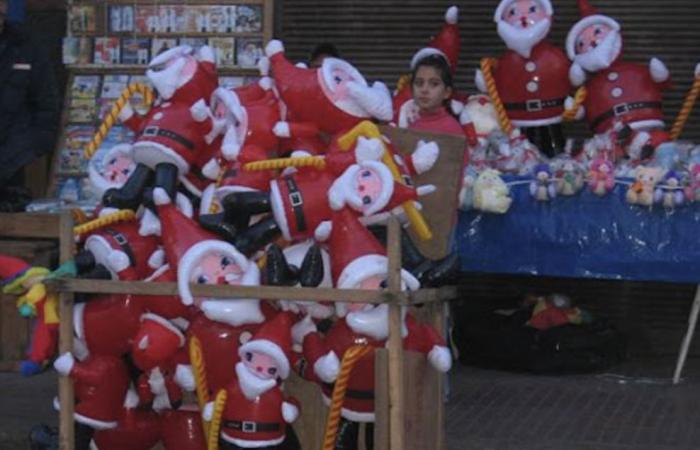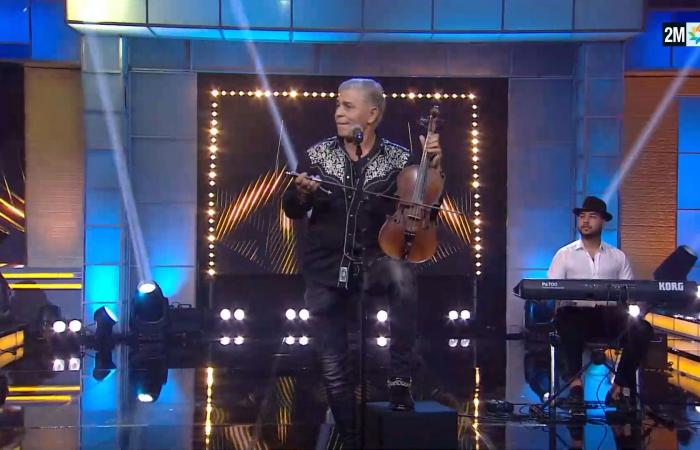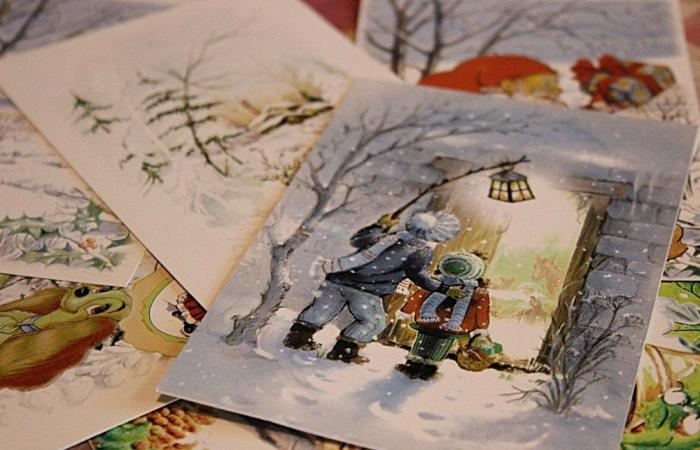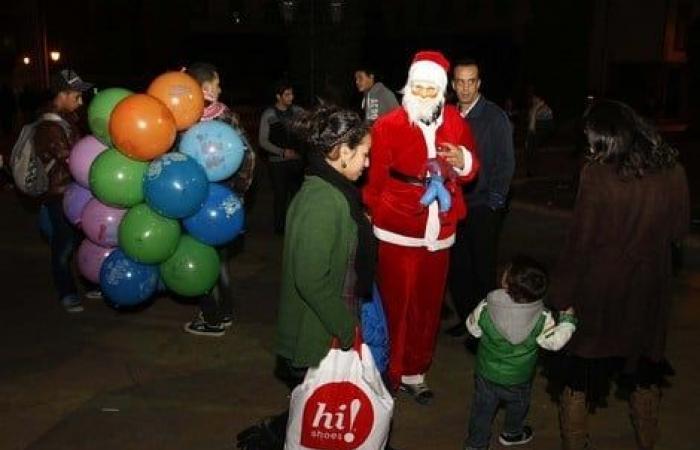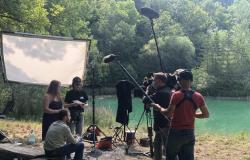In a few days, the world will welcome a new year. In Morocco, New Year celebrations are often family-oriented, with rituals that have marked generations. Ahead of this, people who grew up in the 1980s and 1990s in the country shared with Yabiladi their memories of those evenings at a time when the Internet, smartphones and social media were not a normality.
Cake: a New Year’s Eve must-have
As the end of the year approaches, many pastry shops offer cream and chocolate cakes. Many families are busy ordering these preparations in advance, essential for the evening.
This is not a new tradition, according to Saloua, 42. This mother of three children remembers Christmas Eves with her family very well in the late 1980s.
“I lived with my parents and my brother in Lakhssas, a small town in the province of Sidi Ifni. We celebrated New Year’s Eve like all other Moroccan families,” she tells Yabiladi. The cake is undoubtedly the star of the evening. “I would go to the bakery myself, even though we lived in a small town with few choices, to order the cake in advance,” she recalls.
The cake is usually served after dinner. “It was round, with lots of cream and chocolate, reminiscent of the black forest,” jokes Saloua. “But the leftovers were for breakfast the next day, that’s a rule,” she adds.
Youness, 30, from Casablanca, agrees. For his family of five, the novelty was adding Moroccan specialties to this mix. “In addition to the cake, my mother decorated the table with local cookies. My family is from Safi, so kaak was a must,” he tells us.
“Breakfast the next day consisted of leftovers from the day before, which certainly created digestive difficulties for me,” jokes Youness.
On television, special New Year programming
Besides the famous cake, Youness’s childhood New Year’s Eve also meant Atiq Benchikar, a former star presenter who hosted a number of music entertainment and New Year’s Eve shows on 2M, in the 1990s and early 2000s.
Television and special programming during the evening allowed Moroccan families to entertain themselves while enjoying sweets, comfortably warm at home.
Some were marked by the music, the chaâbi in particular, others, like Saloua, remember the bloopers. “At the time, there was only one television channel, Al Aoula,” remembers this mother of three children.
“There was a New Year’s special with shows and concerts, and above all, the segment that my brother and I were most excited about: the bloopers. Watching the TV news presenters burst into laughter, making mistakes or repeats, it was a highlight of television for us.”
But some families were not satisfied with Moroccan television. French channels were also followed, with a New Year countdown on two occasions. Mohamed, 35, remembers his evenings in the 1990s. “We did the countdown twice, once with French television, then with Moroccan television,” he says.
For Faiza, 28, from Casablanca, childhood memories of New Year’s Eve in the early 2000s are linked to “The Year of Silence.” “I really liked the silent images and the highlights of the year, in addition to the bloopers, of course,” she confides to Yabiladi.
“I wish you a happy new year”
We cannot enjoy a New Year’s Eve without having exchanged greetings with loved ones, depending on the decade and the technologies available at that time.
A child of the 1980s, Saloua did not live with cell phones and social networks. Like many, she sent postcards to her friends and cousins and impatiently awaited theirs.
“My father often bought us postcards with his wishes for the New Year. We wrote to our cousins and my father sent them later,” she remembers.
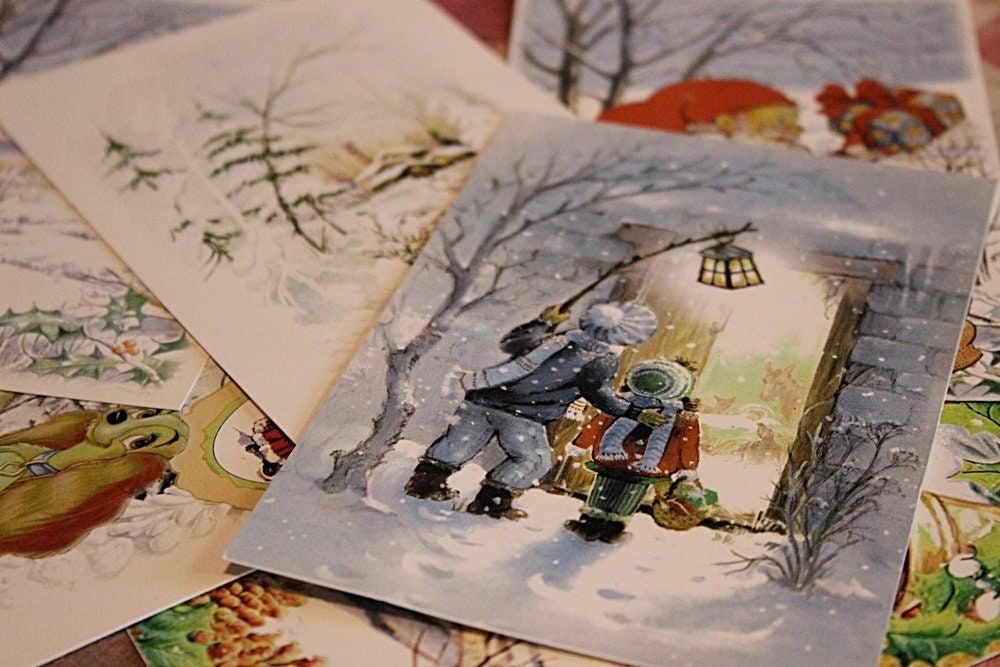
Saloua cannot evoke these memories without mentioning this: “I still remember that every year, I sent a card to one of my cousins to wish a happy new year. Now, this cousin is my husband and the father of my children.”
For Mohamed, his family preferred calls, but with one exception. “My parents used to call family and friends at 10 a.m. to make sure everyone was still awake and that they weren’t disturbing anyone,” he says.
With cell phones, people started sending SMS, in the form of attempted rhymes: “Sana saida kif lka3ida”, “Sana saida wa haloua ladida” or the classic “see you next year”, which Youness does not finds it “still not funny”.
Smile at the camera
The transition to the new year cannot take place without a photo. In the 1980s, Saloua and his family used analog. With her brother, she always had to prepare for it, due to a lack of filter or retake options.
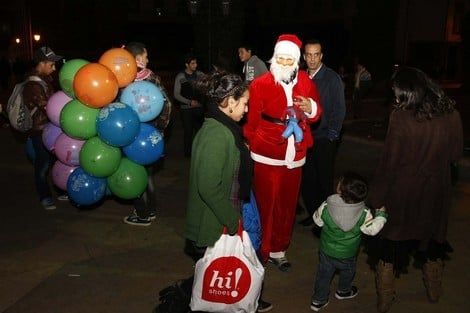
“We would put on our best clothes, my brother and I, because there would inevitably be a photo – an analog photo, of course, since my father had a camera,” she says.
For young people, a photo with the phone camera is enough. After the meal and the television, “my mother takes a photo as a souvenir to send to the family or later for my older sister, who has gone to study in France,” explains Faiza.

